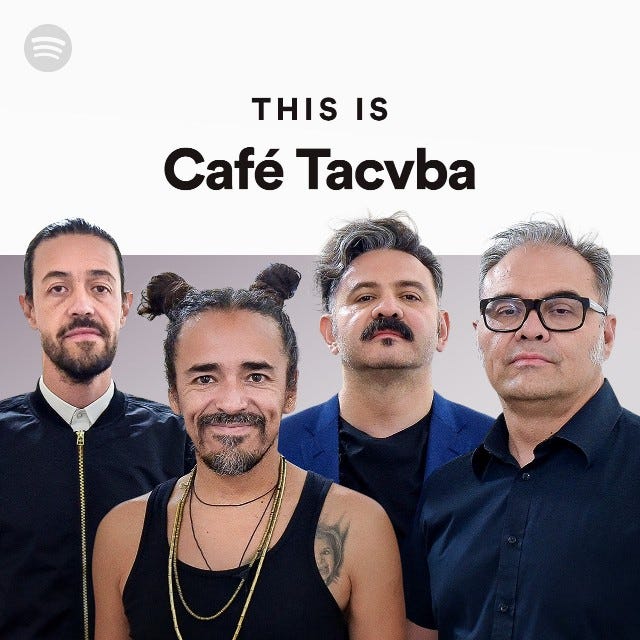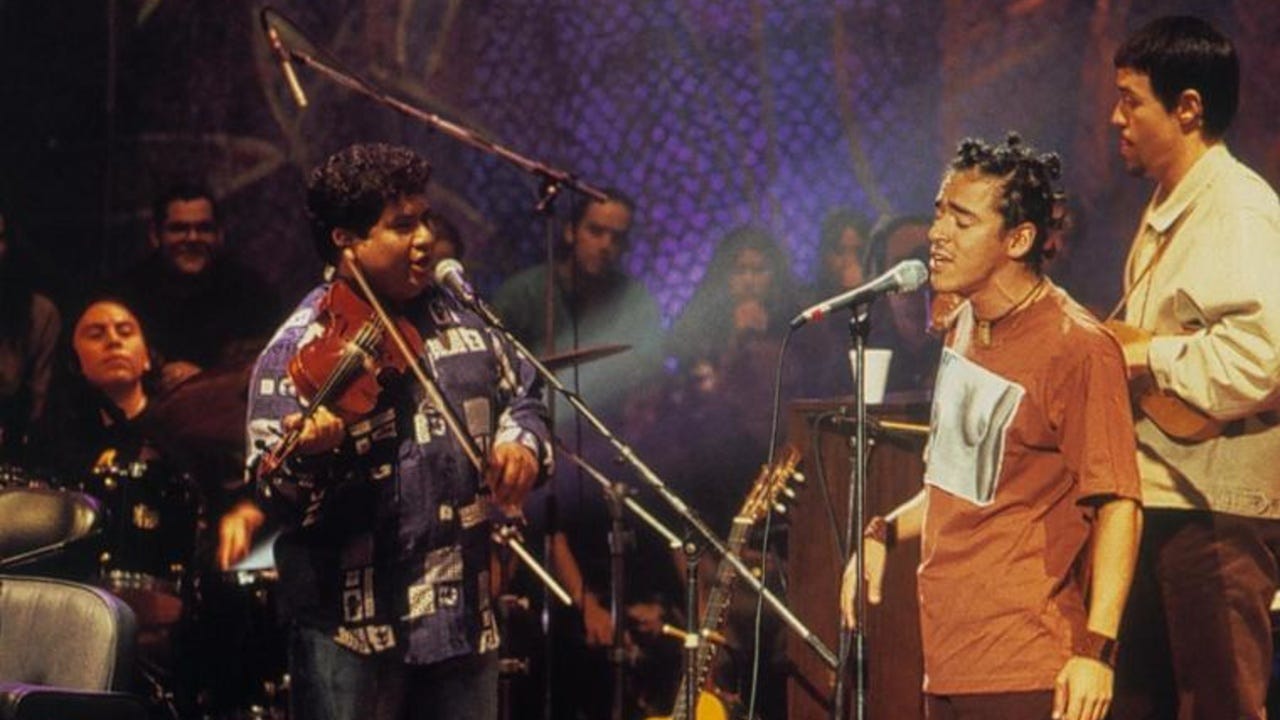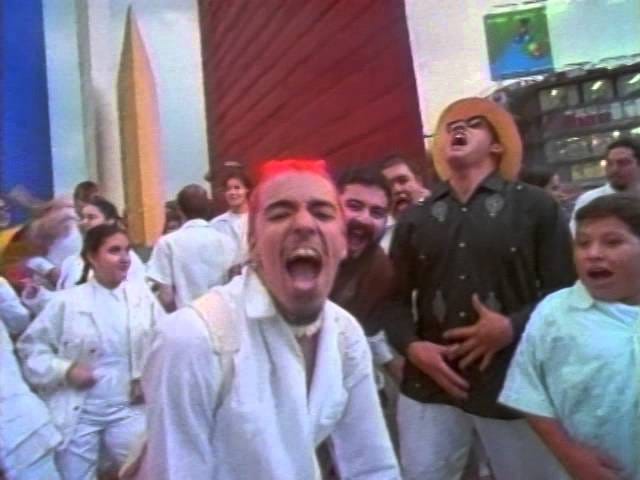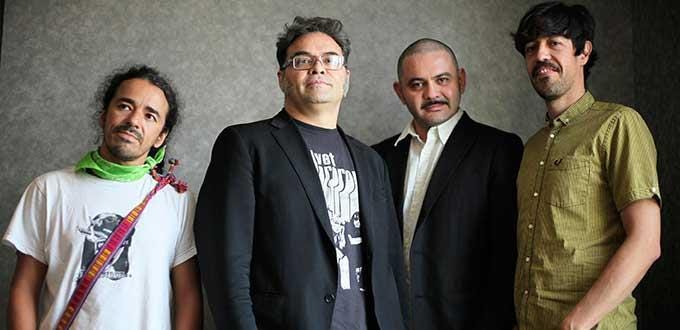When I think of Mexico City—its streets alive with history, its neighborhoods bursting with color, its people shaped by a deep sense of tradition and modernity—the sound of Café Tacvba often comes to mind. For many of us, Café Tacvba isn’t just another rock band. It’s an essential part of the soundtrack to our lives, a reflection of Mexico’s cultural identity in all its beautiful complexity.
Since their formation in 1989, the band has woven itself into the fabric of Mexican culture. From their early days playing in the streets of Ciudad Satélite to becoming icons of Latin American music, their journey mirrors the story of modern Mexico: a blend of the old and new, deeply rooted in tradition but always pushing forward, experimenting, and evolving.


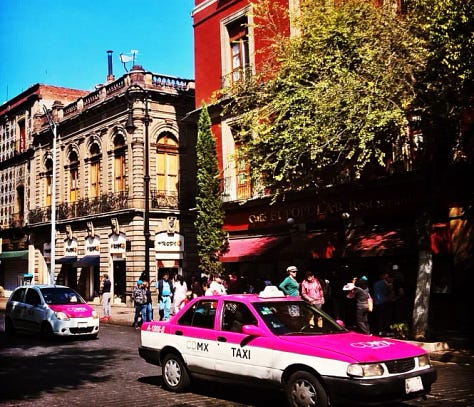
The Mexico City Spirit in Sound
To understand Café Tacvba, you have to understand Mexico City—my city, a sprawling metropolis that feels both ancient and avant-garde. Café Tacvba embodies this duality. They emerged during the late 80s and early 90s, a time when Mexico City was grappling with its own identity, still recovering from the 1985 earthquake, and feeling the seismic shifts of globalization and political change.
The band took its name from the iconic Café de Tacvba, a historic restaurant in the city center, where history and modernity meet in the heart of downtown. This name alone speaks volumes. Café Tacvba, both the band and the place, represent a deep connection to tradition while embracing the chaos and creativity of urban life.
Their music reflects the spirit of the city itself: vibrant, chaotic, unpredictable. From the sound of "Chilanga Banda"—a wild, slang-filled tribute to chilango life—to the haunting beauty of "Esa Noche", Café Tacvba captures the many moods of Mexico City. Their music is as much about the urban sprawl as it is about the emotional landscape of those who live within it.
A Blend of Traditions
One of the most compelling aspects of Café Tacvba’s music is its ability to seamlessly blend traditional Mexican sounds with modern influences. At their core, they embody the idea that Mexican identity is not fixed, but fluid—constantly evolving, taking from the past to create something new.
From their very first self-titled album, you hear this mix of genres: rock, punk, electronic music, and Mexican folk traditions like son jarocho and norteño. Tracks like "La Ingrata" combine a polka beat with irreverent, tongue-in-cheek lyrics that poke fun at love, while "El Baile y el Salón" transports you to the dance floors of Mexico, where rock meets danzón. It’s a genre-blending experience that feels as familiar as a trip to the mercado, yet as innovative as a mural by Diego Rivera.
Café Tacvba is often described as rock en español, but their music goes far beyond that label. They’ve drawn from a vast array of influences, from The Smiths to traditional Mexican folk music, crafting a sound that is distinctly theirs and unmistakably Mexican. And this blending of the traditional with the modern isn’t just a musical choice—it’s a reflection of what it means to be Mexican today.
An Evolving Identity
What makes Café Tacvba truly special is their ability to adapt and evolve without losing their essence. As Mexico has changed, so have they. Just as the country moves between its indigenous roots and its position as a global player, Café Tacvba has managed to stay at the forefront of cultural shifts.
Their albums are sonic explorations of Mexico’s shifting identity. Take "Re", their seminal 1994 album, often considered the "White Album" of Latin American rock. It's an ambitious journey through genres, cultures, and emotions. The album jumps from cumbia to punk, from traditional Mexican ballads to synth-heavy experimentation, yet it remains cohesive. It’s an album that reflects the Mexican experience: diverse, complex, sometimes contradictory, but always connected to something deeper.
And then there’s "Cuatro Caminos", which takes a different approach, exploring themes of love, loss, and existential doubt. Released in 2003, it resonated with a generation grappling with the uncertainties of modern life, while also honoring the band’s ever-present link to Mexican identity. Café Tacvba’s ability to shift their sound, while maintaining that connection to their roots, has kept them relevant for over three decades.
Cultural Ambassadors
Beyond the music, Café Tacvba has come to represent Mexican culture on a global stage. They’ve toured the world, bringing the sounds of Mexico to audiences far from the streets of Mexico City. And yet, even as their fame has grown, they’ve remained rooted in the cultural and social issues that define Mexico.
Their songs often touch on the struggles of everyday Mexicans—the working class, the marginalized, those fighting for their voices to be heard. In tracks like "Trópico de Cáncer", they explore migration, displacement, and identity in a way that resonates with anyone who has ever felt caught between two worlds. They don’t shy away from addressing political and social issues, but do so with a poetic subtlety that makes their message all the more powerful.
Café Tacuba: A Mirror of Mexico’s Soul
In many ways, Café Tacvba is more than just a band—they are cultural ambassadors, a reflection of Mexico’s diversity and complexity. Their music captures the contradictions and beauty of Mexican life: a place where ancient traditions and modernity coexist, where joy and hardship are never far apart, and where identity is always evolving.
As a chilango, I see Café Tacvba as a band that has grown with Mexico City itself. They’ve been with us through the ups and downs, the transformations, and the challenges. They remind us that Mexican culture isn’t a static thing, but a living, breathing entity—one that is constantly being redefined, reinterpreted, and reimagined.
So next time you’re wandering through the streets of CDMX, put on some Café Tacvba and listen closely. You’ll hear more than just music—you’ll hear the pulse of the city, the soul of a country, and the sound of what it means to be Mexican in the modern world.


